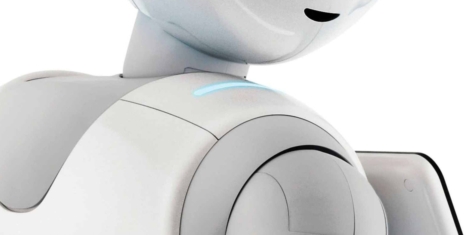August 23, 2018
Finance professionals prioritise protection of employment rights in Brexit deal
 Securing employment rights for workers must be one of the key priorities of any Brexit deal, according to a fifth of finance professionals surveyed by REED. The recruitment agency asked almost 800 senior finance professionals about company preparations for leaving the EU, finding that only prioritising a free trade deal for the UK (31 per cent) received more votes than securing employment rights (20 per cent). Finance professionals gave considerably less backing for prioritising membership of the single market (18 per cent), self-determined UK law (10 per cent), the customs union (10 per cent) and border controls (10 per cent).
Securing employment rights for workers must be one of the key priorities of any Brexit deal, according to a fifth of finance professionals surveyed by REED. The recruitment agency asked almost 800 senior finance professionals about company preparations for leaving the EU, finding that only prioritising a free trade deal for the UK (31 per cent) received more votes than securing employment rights (20 per cent). Finance professionals gave considerably less backing for prioritising membership of the single market (18 per cent), self-determined UK law (10 per cent), the customs union (10 per cent) and border controls (10 per cent).











 More SMEs than larger businesses offer flexible working as a way of reducing absences, research from industry body Group Risk Development (GRiD), suggests. The research showed that 35 percent of SMEs with up to 249 employees are actively using flexible working strategies to combat absence compared to just 23 percent of organisations with over 250 employees. Drilling down further into the detail, 38 percent of micro businesses with between 1 and 9 employees use flexible working as a means to reduce absence. Flexible working now means a lot more than allowing an employee to work from home when they are feeling under the weather, and following changes in the law in 2014, it is now an option for everyone with at least 26 weeks continuous employment to request it – not just those with children or carer responsibilities. It also includes part-time working, term-time working, job sharing, compressed hours and flexitime. A greater degree of flexibility can increase productivity and reduce burn out, particularly in stressful occupations.
More SMEs than larger businesses offer flexible working as a way of reducing absences, research from industry body Group Risk Development (GRiD), suggests. The research showed that 35 percent of SMEs with up to 249 employees are actively using flexible working strategies to combat absence compared to just 23 percent of organisations with over 250 employees. Drilling down further into the detail, 38 percent of micro businesses with between 1 and 9 employees use flexible working as a means to reduce absence. Flexible working now means a lot more than allowing an employee to work from home when they are feeling under the weather, and following changes in the law in 2014, it is now an option for everyone with at least 26 weeks continuous employment to request it – not just those with children or carer responsibilities. It also includes part-time working, term-time working, job sharing, compressed hours and flexitime. A greater degree of flexibility can increase productivity and reduce burn out, particularly in stressful occupations.






 Most organisations already offer some sort of flexible working and over half of employees now ask to work flexibly, a new survey from XpertHR research has claimed. One in 12 organisations (8.1 percent) reported that all employees worked flexibly, with employers attributing the rise to a more supportive workplace culture and the impact of recent legal changes. The survey found that more than half (55.9 percent) had seen an increase in flexible working requests over the past two years. Three out of four believed that this was due to changes in workplace culture in recent years, attributable in part to a change in the law in 2014 that extended the right to request flexible working to all employees with at least 26 weeks’ service. Flexible working goes across the board, and includes part-time working, variable start and finish times, home-working and other options.
Most organisations already offer some sort of flexible working and over half of employees now ask to work flexibly, a new survey from XpertHR research has claimed. One in 12 organisations (8.1 percent) reported that all employees worked flexibly, with employers attributing the rise to a more supportive workplace culture and the impact of recent legal changes. The survey found that more than half (55.9 percent) had seen an increase in flexible working requests over the past two years. Three out of four believed that this was due to changes in workplace culture in recent years, attributable in part to a change in the law in 2014 that extended the right to request flexible working to all employees with at least 26 weeks’ service. Flexible working goes across the board, and includes part-time working, variable start and finish times, home-working and other options.


 As we recently
As we recently 











